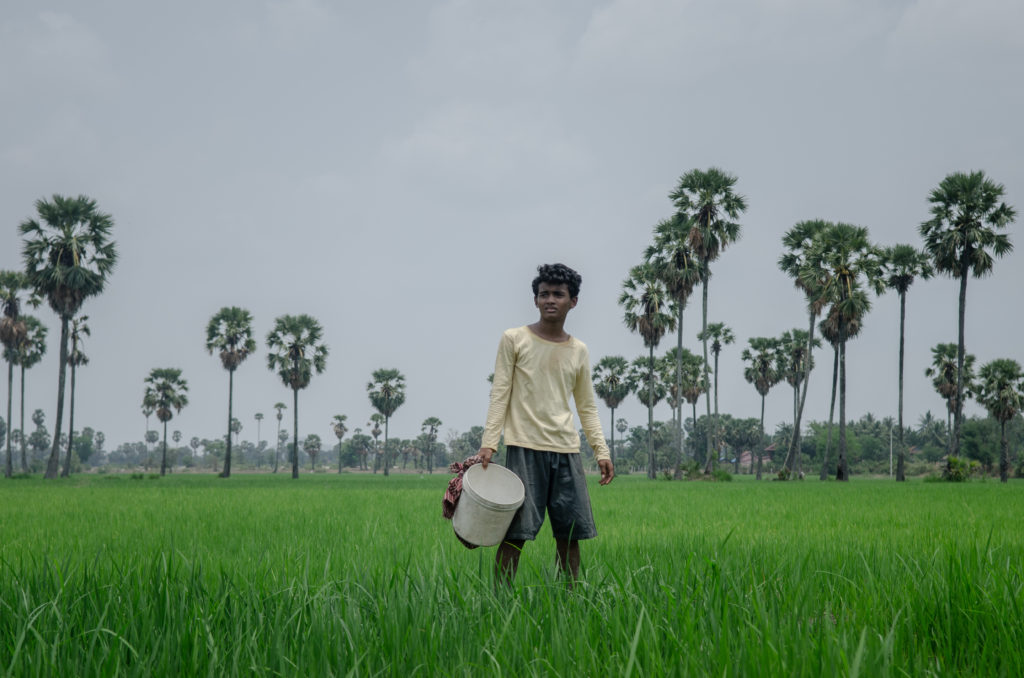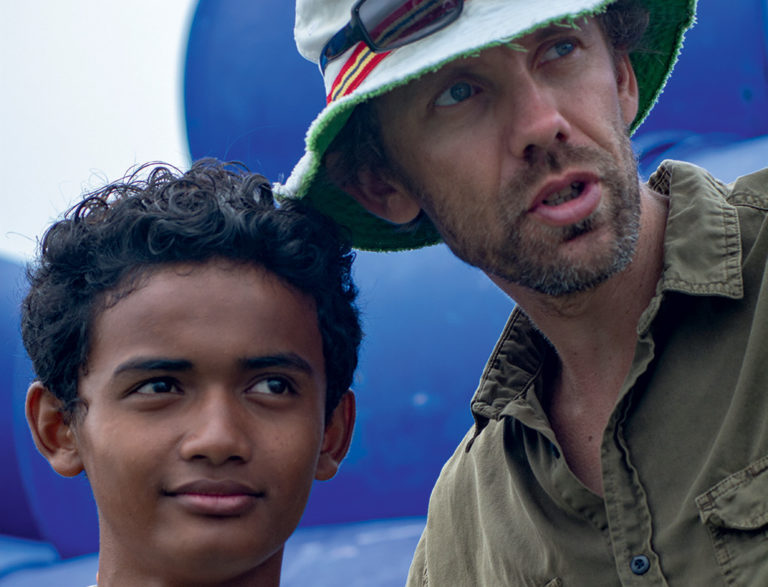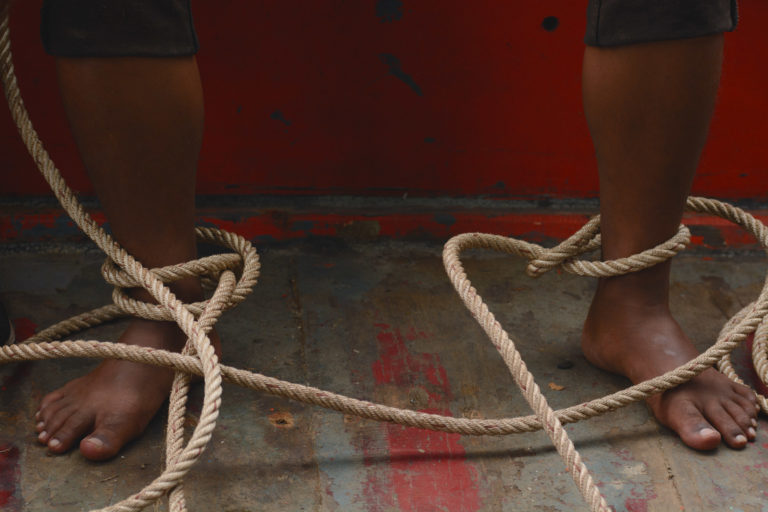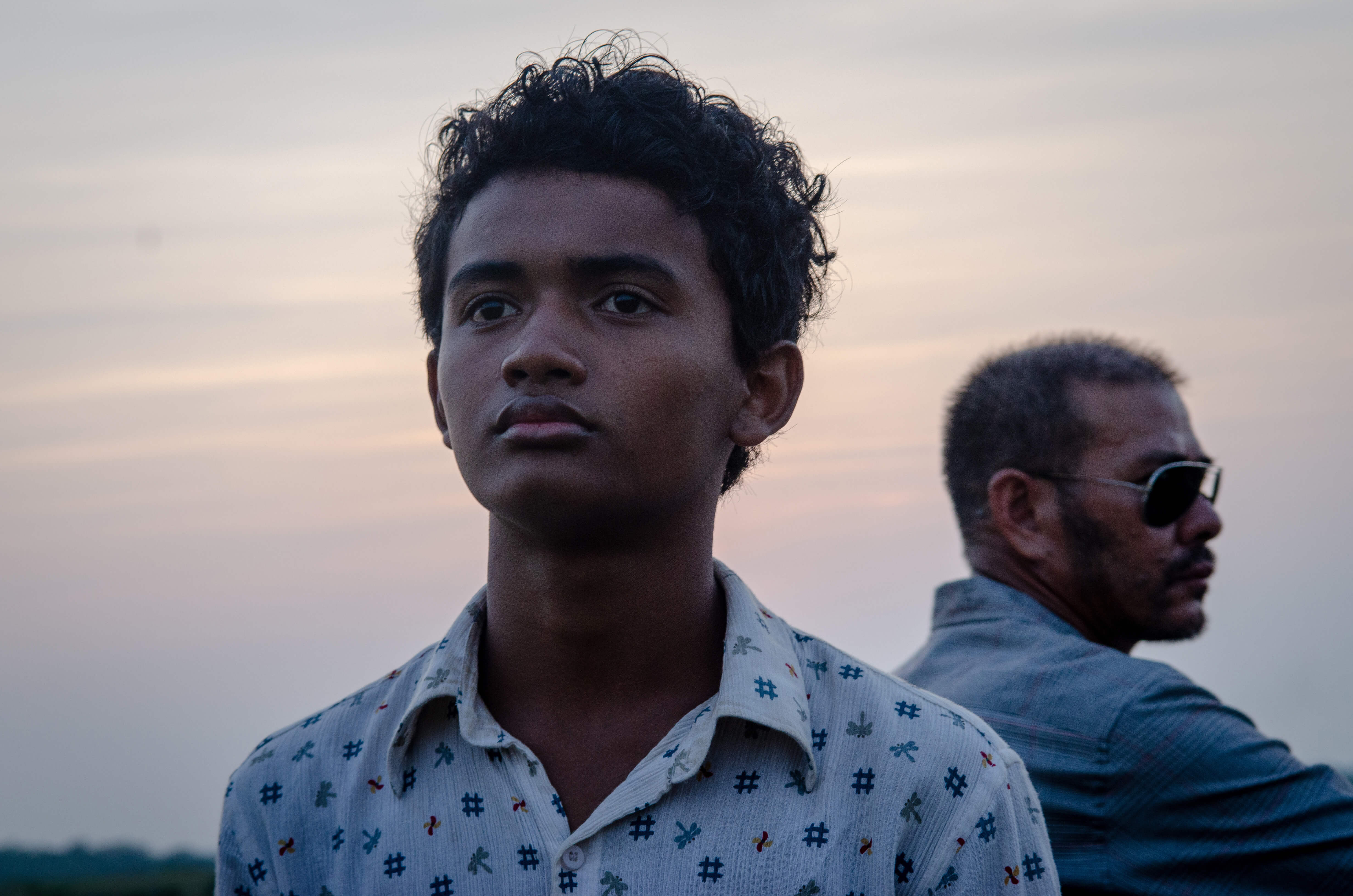ABOUT THE MOVIE
Feature Film – 2019 – 92′
In the Cambodian countryside, Chakra, a lively 14-year-old boy, works the rice fields with his family. Yearning for more independence, he contacts a smuggler to find a paid job in a factory in Thailand. Without warning his family, he leaves for Bangkok hoping to make a better living.
When they get there, Chakra and Kea, his new thirty something friend, discover that the middleman lied to them: like many other Cambodian and Burmese, they are sold as slaves to a trawler captain. They are now doomed to fish 22 hours a day in exchange of a small bowl of cold rice. Those who cannot cope with such terrible conditions or who try to escape are thrown overboard by Captain Rom Ran.
While he witnesses his slave companions being tortured and murdered, Kea soon loses his sanity. When his only ally is killed, Chakra decides to take control of the trawler…


Director
Australian-born Rodd Rathjen grew up in Colbinabbin, a small rural town in the state of Victoria. Graduated from the Victorian College of the Arts in 2010, where he studied film and television, Rathjen directed the short film Tau Seru in India, presented at the Critics’ Week at the Cannes Film Festival in 2013. The film won the Best Short Film Award at the MIFF 2013 and was selected in about 50 festivals around the world.
Early 2014, Rathjen received Director’s Acclaim Fund from Screen Australia and participated in the Berlinale Talent Campus. He obtained funding and shot the short film Sweat, with Colin Friels (The Turning, Dark City), presented at MIFF 2015. Freedom (2019) is his first feature film.
-
DETAILS
- FRENCH THEATRICAL RELEASE – November 27, 2019
- DIRECTOR and SCRIPT – Rodd Rathjen
- CAST – Sarm Heng, Thanawut Raso, Mony Ros
- PRODUCTION – Causeway Films
- FRENCH DISTRIBUTION – Echo Studio, Apollo Films
- INTERNATIONAL SALES – Echo Studio, Charades
Downloads
ACT

FREEDOM is the first feature fiction film that deals with the terrible question of slavery on the Thai fishing boats. For producer Kristina Ceyton: “We found it necessary to highlight this story”.
Thailand’s export of fishery products generated $5.5 billion in 2017. According to the United Nations, 50% of the 600,000 men working in this sector come from Myanmar or Cambodia. Human trafficking victims are forced to work on trawlers throughout the region to sell fishery products to consumers around the world. Every day, about 60 young boys leave Cambodia for Thailand thinking they will work in a factory and send money to their family. Less than 8% come back. Human Rights Watch interviewed some 248 fishermen and former fishermen from Burma and Cambodia, as well as Thai politicians, boat owners, local activists, and United Nations staff. This survey was conducted in Thailand’s main ports over a two-year period.

